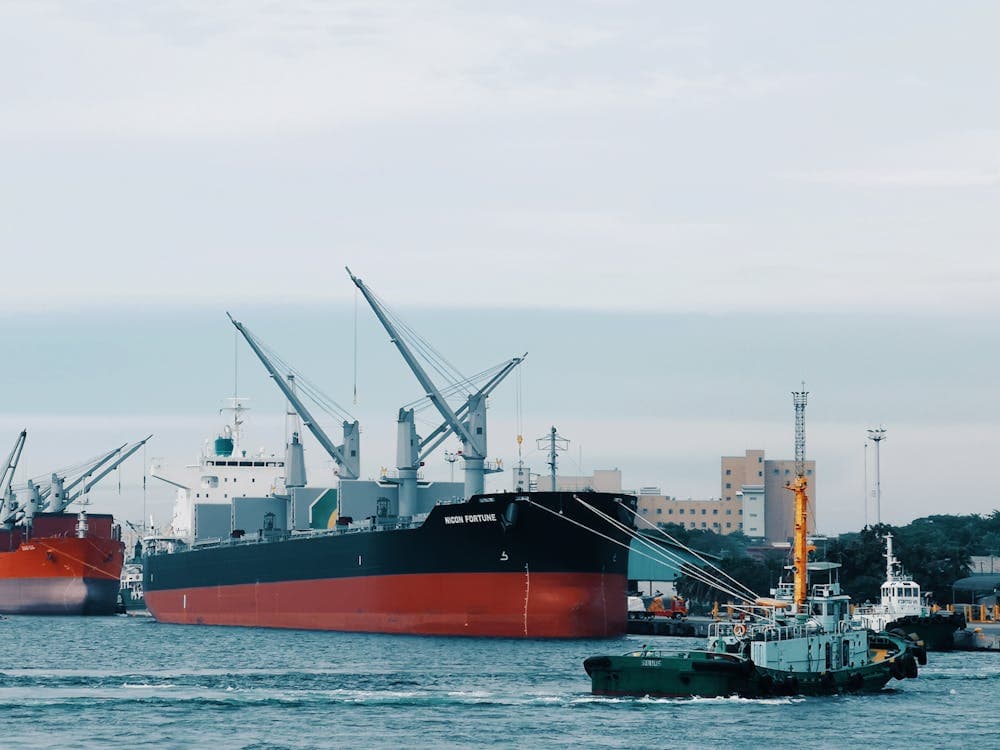Solve your problem now and skip the article by chatting with a Mavyn expert, or keep reading below.




Autonomous Ships: The Future of Unmanned Vessels in Commercial Shipping and Exploration
The maritime industry is on the brink of a technological revolution with the rise of autonomous ships, promising to transform commercial shipping and exploration. These unmanned vessels, powered by sophisticated AI systems, are set to redefine the norms of maritime operations, enhancing efficiency, safety, and sustainability. In this article, we delve into how autonomous ships are shaping the future of the maritime industry.
What are Autonomous Ships?
Autonomous ships, or unmanned vessels, are ships operated via remote control or autonomous technology without onboard human crew. These vessels are equipped with advanced sensors, radar, and AI-driven navigation systems that allow them to perceive their environment and make decisions.
Key Technologies in Autonomous Ships:
- AI and Machine Learning: For processing data and making navigational decisions.
- Sensors and Radar: These provide real-time data on the ship's surroundings.
- Satellite Communication: Ensures the ship remains connected for remote monitoring.
Benefits of Autonomous Ships
Increased Efficiency
Autonomous ships can operate continuously without the need for breaks, significantly increasing operational efficiency and reducing voyage duration.
Enhanced Safety
By eliminating human error, which is a major cause of maritime accidents, autonomous ships improve overall safety at sea.
Reduced Operational Costs
With no crew to accommodate, autonomous ships can be designed for optimal space usage and lower life support costs.
Environmental Sustainability
Autonomous ships are often powered by alternative energy sources like solar or wind, reducing greenhouse gas emissions.
Applications of Autonomous Ships
Commercial Shipping
Autonomous cargo ships can transport goods across the globe more efficiently. Companies can manage fleets remotely, reducing the need for on-site staffing.
Exploration
Unmanned vessels can explore uncharted waters or hazardous environments without risking human lives. This is particularly useful in deep-sea exploration and scientific research.
Examples of Autonomous Ships in Action
- Yara Birkeland: The world's first fully electric and autonomous container ship, set to reduce NOx and CO2 emissions.
- Hrönn: An autonomous ship designed for offshore energy operations and fish-farming support.
Challenges Facing Autonomous Ships
Regulatory Hurdles
The lack of specific regulations for unmanned vessels is a significant barrier, as current maritime laws assume ships have crews.
Technological Limitations
While technology is advancing, issues like data security and the reliability of AI systems in unpredictable marine environments remain concerns.
Public Perception and Acceptance
Gaining trust in autonomous technology from the public and industry stakeholders is crucial for widespread adoption.
The Role of Mavyn in the Era of Autonomous Ships
At Mavyn, we understand the complexities and potentials of integrating AI into various sectors, including maritime. Users can engage with Mavyn GPT for AI-driven insights or connect with human experts to navigate the challenges and opportunities presented by autonomous ships.
Whether you're a business looking to understand autonomous shipping logistics or a researcher exploring environmental impacts, Mavyn provides tailored expert advice and AI analytics to help you make informed decisions.
In conclusion, autonomous ships represent a significant advancement in maritime technology with the potential to revolutionize commercial shipping and exploration. As the industry navigates these uncharted waters, the integration of AI and expert human insights will be key to unlocking the full potential of unmanned vessels.
For more information on how AI is transforming industries, connect with Mavyn today and explore a world of possibilities with both AI and human expert guidance.
